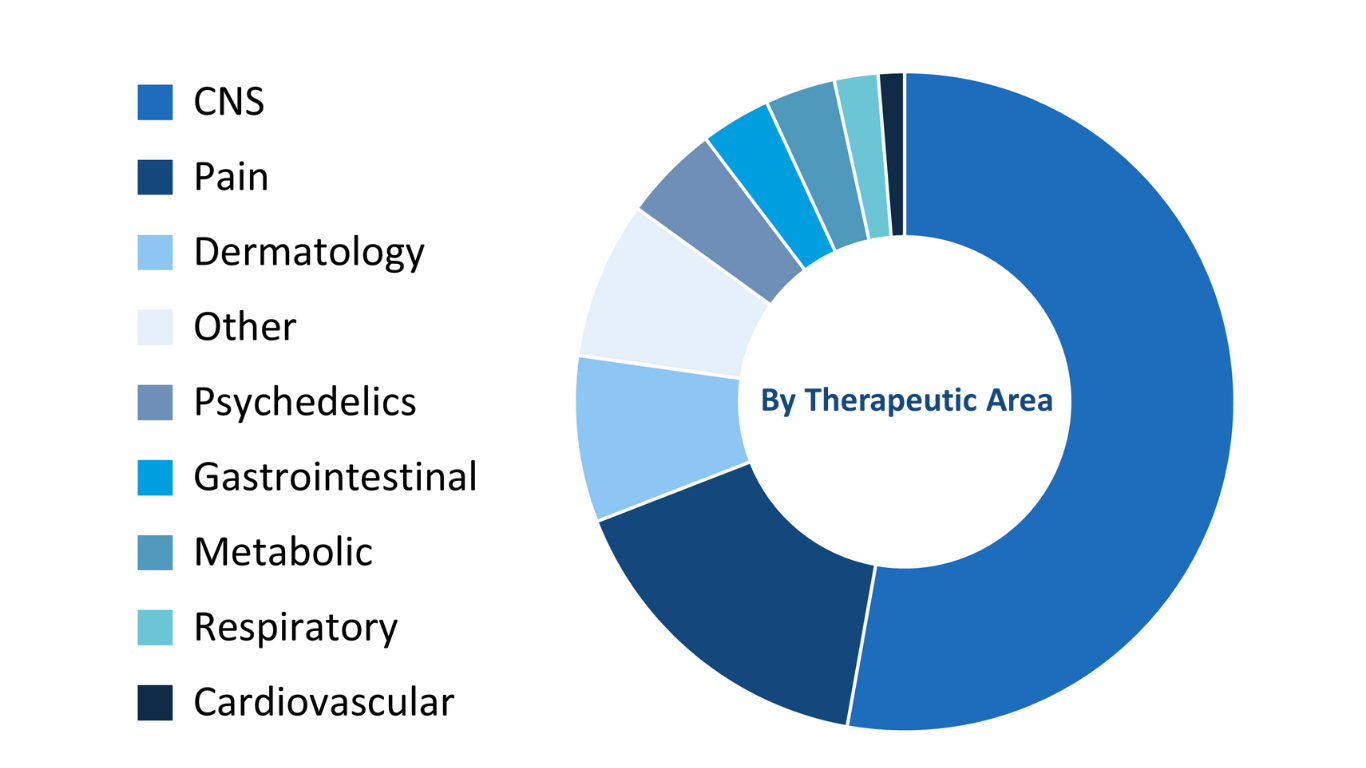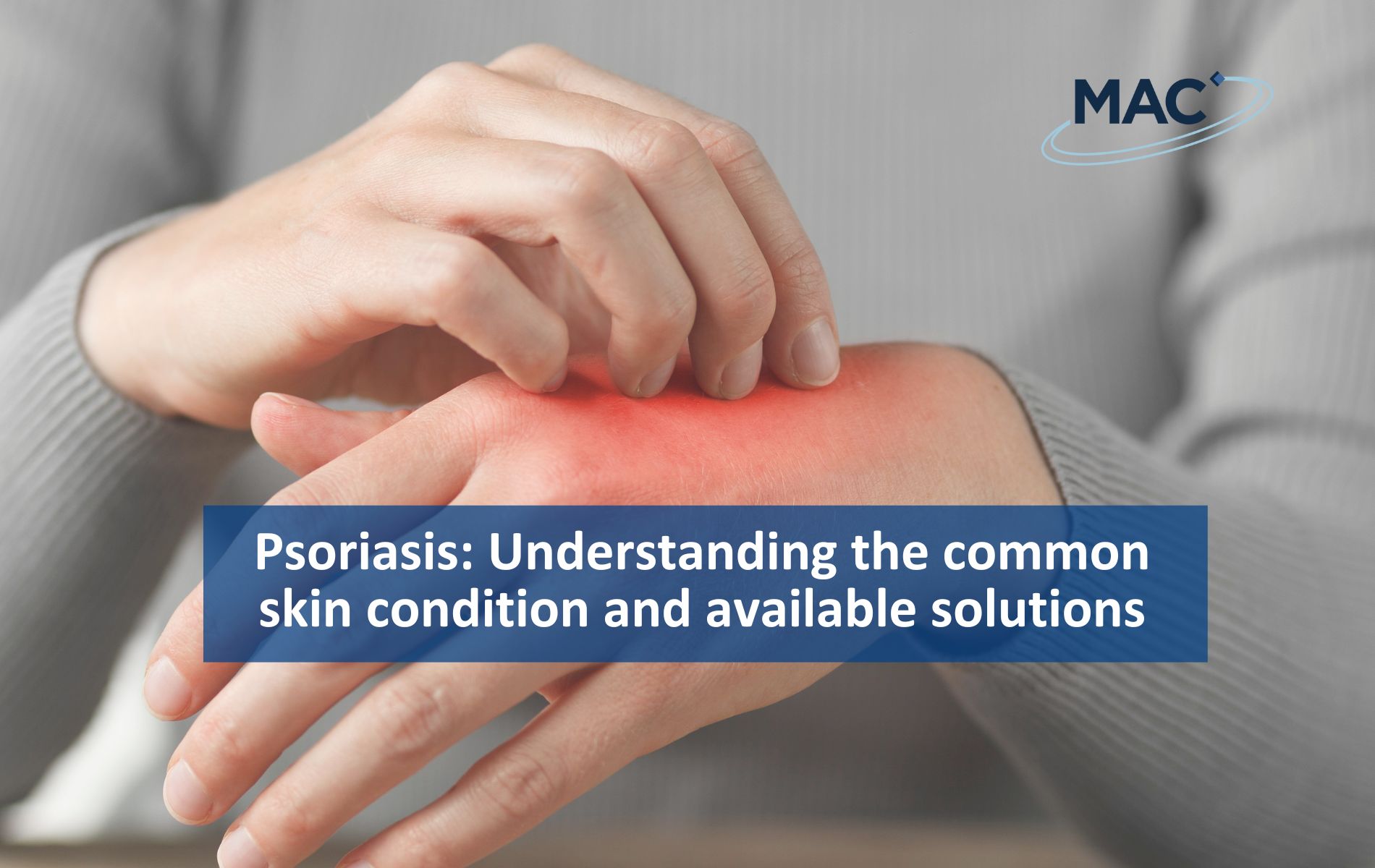Psoriasis is a chronic skin disease that affects millions of people worldwide causing uncomfortable and itchy scaly patches primarily on the knees, elbows, and scalp. This condition can be painful, disrupt sleep patterns, and hinder concentration. The National Psoriasis Foundation states that Psoriasis affects approximately 125 million people worldwide*.
Psoriasis can manifest with both systemic and localised symptoms. Diagnosis is primarily based on patient history, clinical signs, and symptoms which healthcare providers carefully assess to identify and manage the condition effectively.

MAC Clinical Research Physician, Dr Tosin Idowu, states ‘In rare cases, Patients may experience malaise, fever, tachycardia, and joint pain. The localised symptoms include itching, soreness, and the appearance of white or silvery patches which may vary in colour based on the individual’s skin tone. The condition tends to go through cycles, flaring up for a few weeks or months then subsiding again.’
Psoriasis is a prevalent and challenging skin condition that impacts the lives of millions of people. Healthcare professionals categorise treatments into three main categories:
- Topical Treatments: These involve the application of creams and ointments directly to the affected skin. Topical medications help to reduce inflammation, itching, and scaling offering localised relief to patients.
- Phototherapy: In phototherapy the patient’s skin is exposed to specific types of ultraviolet light. This treatment has shown promising results in managing Psoriasis by slowing down skin cell growth and reducing inflammation.
- Systemic Treatments: Oral and injected medications work throughout the entire body to control the immune response that triggers Psoriasis. These systemic medications are typically prescribed for more severe cases of the condition.
Various factors are associated with the onset or worsening of Psoriasis such as infections, drug-related issues (including corticosteroid withdrawal), exposure to ultraviolet light, trauma, hormonal changes, stress, smoking, and alcohol consumption. Psoriasis may also be linked to other conditions like psoriatic arthritis, metabolic syndrome, inflammatory bowel disease (specifically Crohn’s disease), anxiety, and depression.
The National Institute for Health and Care Excellence (NICE) guidelines emphasize lifestyle modifications to complement medical treatments. These include weight management for those who are overweight or obese, smoking cessation, and moderation of alcohol consumption.

Mental health plays a crucial role in managing Psoriasis as many patients can experience low self-esteem due to the condition’s impact on their appearance. Dr. Tolu Alalade, a clinical research physician at MAC, highlights the importance of mental health review and making lifestyle changes, such as adopting a healthy diet and regular exercise, to alleviate stress and improve Psoriasis symptoms.
Dr Alalade notes that advancing treatments can also bring hope to those who are suffering. ‘The good news is there is ongoing research to find treatment options for Psoriasis. MAC has extensive experience in dermatology with key experts across the business demonstrating our commitment to dermatological research and the importance of finding ways to manage conditions like Psoriasis to improve quality of life.’
According to Clincialtrials.gov, there are currently 369 active studies relating to Psoriasis**. Over the past 3 years, MAC has conducted 19 studies in dermatology with 5 of those specific to Psoriasis. We have dermatology experts within our organisation and highly experienced medical and clinical teams.
The dermatology studies we conduct deliver outstanding results, for more information on our experience in this area, view our fact sheet here.
Contact us if you’d like to find out how we can support you with your study needs.
* https://www.Psoriasis.org/Psoriasis-statistics/
** https://clinicaltrials.gov/search?cond=Psoriasis&aggFilters=status:act%20rec%20not











